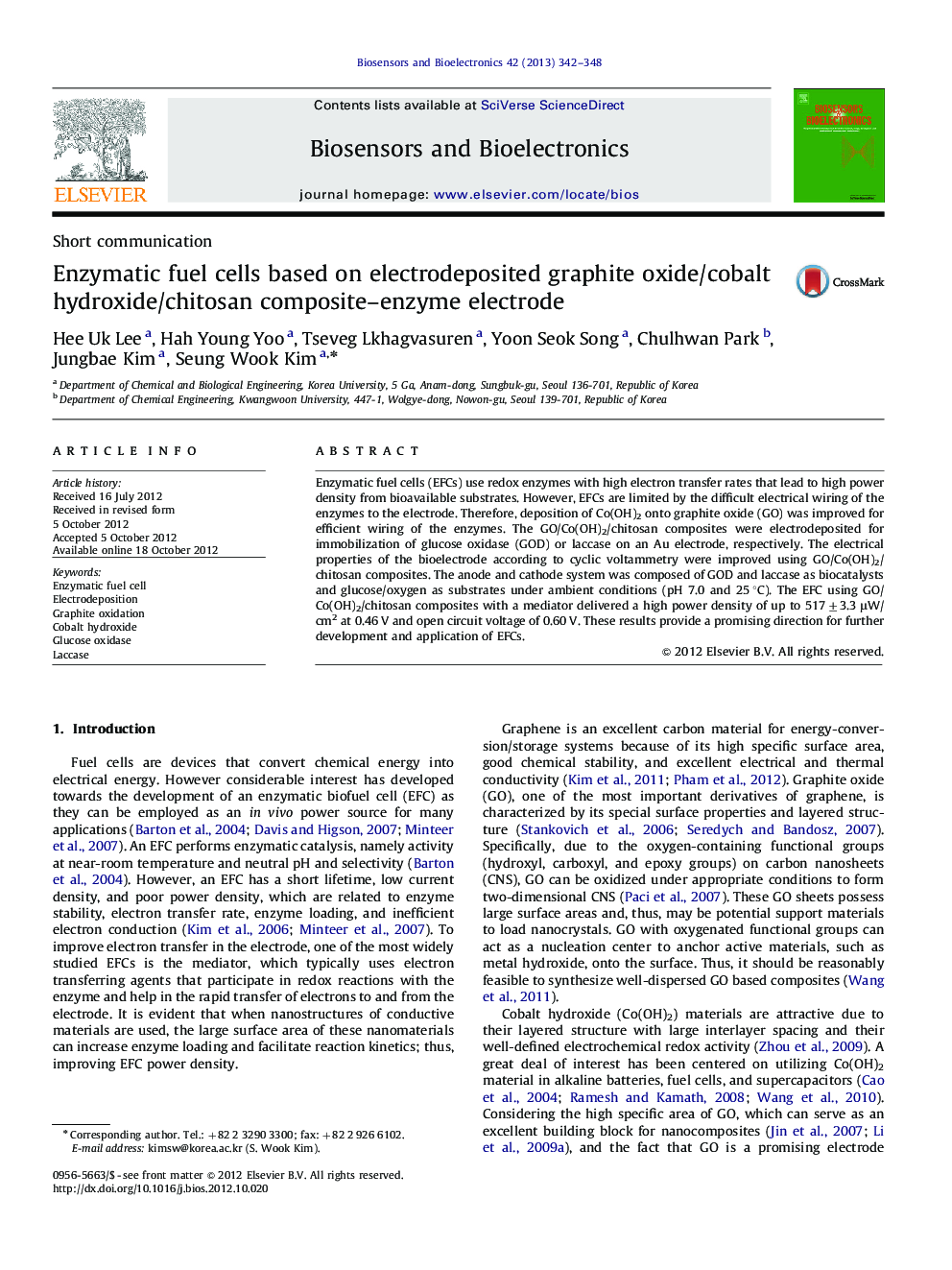| Article ID | Journal | Published Year | Pages | File Type |
|---|---|---|---|---|
| 867160 | Biosensors and Bioelectronics | 2013 | 7 Pages |
Enzymatic fuel cells (EFCs) use redox enzymes with high electron transfer rates that lead to high power density from bioavailable substrates. However, EFCs are limited by the difficult electrical wiring of the enzymes to the electrode. Therefore, deposition of Co(OH)2 onto graphite oxide (GO) was improved for efficient wiring of the enzymes. The GO/Co(OH)2/chitosan composites were electrodeposited for immobilization of glucose oxidase (GOD) or laccase on an Au electrode, respectively. The electrical properties of the bioelectrode according to cyclic voltammetry were improved using GO/Co(OH)2/chitosan composites. The anode and cathode system was composed of GOD and laccase as biocatalysts and glucose/oxygen as substrates under ambient conditions (pH 7.0and 25 °C). The EFC using GO/Co(OH)2/chitosan composites with a mediator delivered a high power density of up to 517±3.3 μW/cm2 at 0.46 V and open circuit voltage of 0.60 V. These results provide a promising direction for further development and application ofEFCs.
► Co(OH)2 was synthesized onto graphite oxide (GO) for efficient wiring of enzymes. ► A GO/Co(OH)2/chitosan electrode was fabricated using the electrodeposition method. ► The electrodes were immobilized using glucose oxidase or laccase. ► The prepared enzymatic fuel cell (EFC) showed high open circuit voltage. ► The EFC also obtained good power density.
